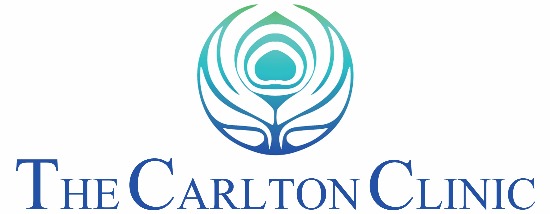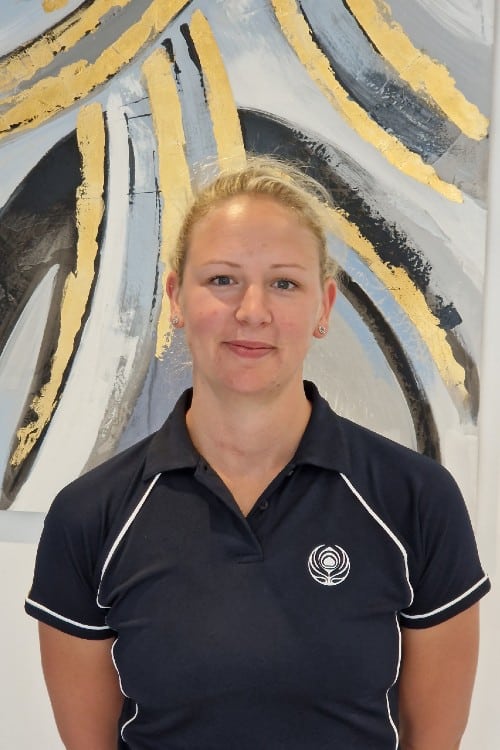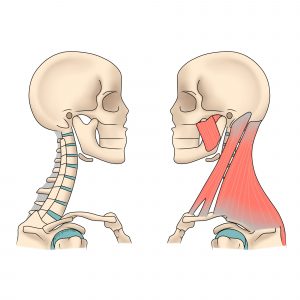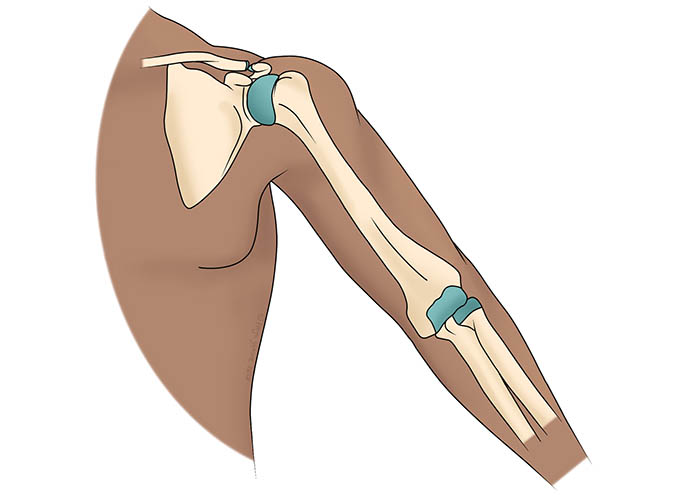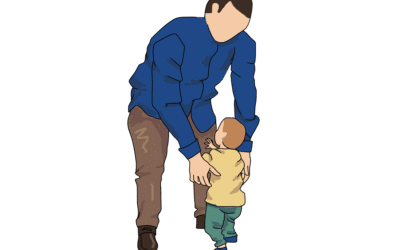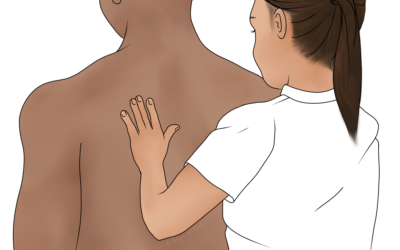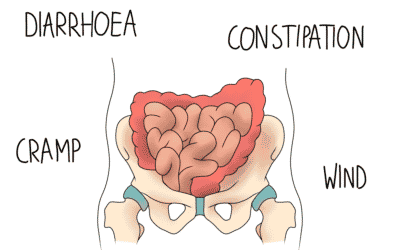Elbow Pain
Muscle Strains around the Elbow
We recently posted about epicondylitis: tennis and golfer’s elbow. We can also help with more straight forward muscle injuries. Muscle injuries are known as strains, and they are graded by their severity. A grade 1 strain involves damage to under 5% of the muscle fibres, whereas a grade 3 strain is a total rupture of the muscle. These grades come with variations of symptoms, in terms of pain severity, weakness, and bruising. They also have different expected healing times. Your osteopath can help rehabilitate a strain, and may be able to give you exercises to reduce the likelihood of repeating the injury. It is important to use the muscle after a short period of rest to make sure the fibres heal as well as possible.“Student’s Elbow”: Olecranon Bursitis
Bursae are soft sacks of tissue that are attached to bone and prevent excess friction on nearby tendons. When they are irritated, they can become swollen and painful, causing bursitis. Although bursae are found all over the body, some are more prone to this irritation than others. In the elbow, it is most often the olecranon bursa. This is the bursa on the point of the elbow, and repeated or prolonged pressure on it can cause bursitis. The nickname “student’s elbow” refers to the vulnerability to pressure from leaning on a desk.Elbow Ligament Sprains
Although elbow sprains are far from the most common thing we see in clinic, they can happen. They may result from a sports injury, particularly when the elbow is hyper extended, possibly alongside a fall onto an outstretched hand. As few muscles act over the elbow themselves, there is not a lot of mass to support a sprained elbow. Despite this, strengthening the local area is still important, and your osteopath can help you with a plan to do so. Do address a sprain as soon as you can to ensure proper healing. Although it may feel like resting the joint is the best thing you can do for it, it does no favours for long term healing.Shoulder Pain
Osteoarthritis of the Shoulder
Any joint with cartilage on its surface can develop osteoarthritis, and the shoulder is no exception. We see arthritis in the ball and socket joint, but also occasionally in the smaller joint where the collar bone meets the shoulder blade. This may present as stiff or crunchy movement, as well as a deep ache within the joint. Many problems with the shoulder are felt in the deltoid muscle on the side of the shoulder, even if the problem is elsewhere. So you might initially mistake your arthritis for a muscular problem. Symptoms of osteoarthritis are manageable, even before your doctor considers you for a joint replacement. The sooner we can see you, the better your prognosis.Rehabilitation after Dislocation
A shoulder dislocation leaves the surrounding ligaments lax. It is important that the joint remains supported after such an injury, to avoid further complications such as osteoarthritis. Conditions like frozen shoulder may also be more likely after a poorly managed injury. Ligaments themselves take a long time to heal, so keeping the muscles around them strong in the meantime is a good idea. Your osteopath can help you with rehabilitation after an injury like this, whether it’s a full dislocation or a more minor subluxation.If you are suffering from any of these conditions, make an appointment with one of our osteopaths today.
